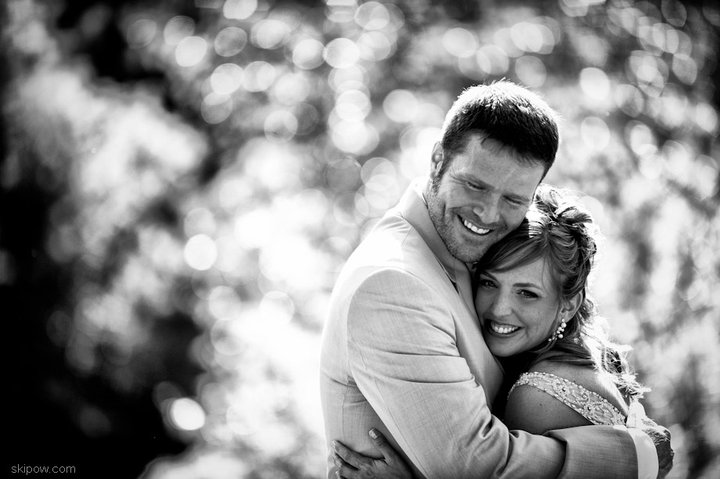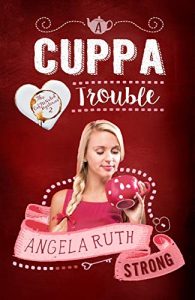by Angela Ruth Strong, @AngelaRStrong
My name is Angela Ruth Strong, and I’m a romanceaholic. I admit it. I love a good love story.
Unfortunately, many of them are not emotional enough to satisfy. I pick them apart like a Star Wars fan watching the sequels.
But you know what? I’m okay with it. Rather than going through a twelve-step program to deal with my own issues, I’m just going to give writers six steps to make me fall in love with your books.
- Likable characters—I need a reason to root for them. I have to want to hang out with them for hours on end. What are they passionate about? What makes their motives relatable? In what ways will I aspire to be more like them? The most recent heroine who caught my attention is Laura Jean Covey from To All the Boys I’ve Loved Before. She’s not a tough leader or super quirky, but she has quiet poise, respectful sweetness, and strong value for relationships. She’s unique, and I adore her for it.
And let’s not forget the supporting cast. They are often the best part—the comic relief. Make every character shine.
- Chemistry—The characters must come to life when they are together. This doesn’t have to be a romantic thing but a vibrancy thing. Your hero could have a best bud that sees through him to the point that nobody else can follow their conversation. Your heroine might have a child who only acts up for her and is an angel for everybody else. How do the dynamics of a room change when your POV character walks into it?
Of course, this is especially important for your main characters. They have to be able to offer each other something that nobody else can. And whatever that is, it CAN’T be boring.
- Sub-text—Dialog is my favorite part of a novel. I need to get involved in the conversation by having to decipher what’s really going on. Basically, dialog cannot be on the nose. Think double meaning. For example, (we’ll talk Star Wars again) while Anakin said I love you like this: “I truly, deeply love you,” Han Solo said it like this: “I know.” One of those makes me cringe, while the other one makes me giddy.
Focus on the undercurrent. Perhaps the characters don’t even know how they feel. Their own words could possibly surprise them. Or maybe it’s more about what isn’t said. My favorite example of this is in Falling for You by Becky Wade. Willow is setting boundaries with her ex, and all he says is, “Huh.” What’s he NOT saying? I kept reading to find out.
- A Believable Obstacle—Writing a romance isn’t about making a man and woman fall in love. They are so obviously perfect for each other and the readers are rooting for them so hard that the author’s job becomes keeping them apart. This is where authors often take shortcuts and come up with ridiculous communication issues. The reader thinks, “If they would just TALK like rational human beings, they could avoid all this!” Rather, you want to make the reader ask, “How will they ever get together?”
The Netflix mini-series Virgin River is a good example. I don’t want to give anything away, but I’d considered writing such a plot for a book, except I didn’t know how to end it. That obstacle is what has all the viewers counting down the days until the next season releases.
- Theme—This is what your reader takes away from the book. I’ve read fun romances with great chemistry and dialogue that kept me guessing until the end, but then when I finished, I thought, “So what?” I didn’t get anything out of it because the author didn’t include a message that resonated.
For me, I don’t want my stories to be just about a woman falling in love with a man—I want her finding out how loved she already is. My themes usually revolve around such an idea, and so I come at it from different angles. For example, if my character is adopted and doesn’t know much about her family tree, I take on generational curses and set the story in the forest. That way there is also symbolism for the lesson of one man causing all men to be cursed by eating from a tree in the Garden of Eden and one man breaking that curse by hanging on a tree for all. I want my readers to feel how this affects their own lives.
- Subplot—The subplot supports the theme of your book and conveys your message in a way that mirrors the heart of the story. It doesn’t have to be overt, and these characters in your subplot don’t need their own POV (rare in romance anyway), but as in real life, there should be more going on than simply the hero and heroine falling in love. For example, if your theme is about grace, then maybe one character doesn’t think she can ever earn it while another thinks he doesn’t even need it. They’ve all been impacted by grace some way. Really make your reader think by looking at the theme from a variety of perspectives.
If you sum it up, to make your romance novel unputdownable, every word in your romance novel must matter. There are no cardboard characters, no random subplots, no summing up the story in dialog, and no easy answers.
I guess you could say that what makes a romance novel better will make any novel better. And, as a romanceaholic, I would also add that a little romance will make any novel better.
Keep writing. It works for you if you work it.
 Angela Ruth Strong sold her first Christian romance novel in 2009 then quit writing romance when her husband left her. Ten years later, God has shown her the true meaning of love, and there’s nothing else she’d rather write about. Her books have since earned TOP PICK in Romantic Times, been optioned for film, won the Cascade Award, and been Amazon best-sellers. She also writes non-fiction for SpiritLed Woman. To help aspiring authors, she started IDAhope Writers where she lives in Idaho, and she teaches as an expert online at WRITE THAT BOOK.
Angela Ruth Strong sold her first Christian romance novel in 2009 then quit writing romance when her husband left her. Ten years later, God has shown her the true meaning of love, and there’s nothing else she’d rather write about. Her books have since earned TOP PICK in Romantic Times, been optioned for film, won the Cascade Award, and been Amazon best-sellers. She also writes non-fiction for SpiritLed Woman. To help aspiring authors, she started IDAhope Writers where she lives in Idaho, and she teaches as an expert online at WRITE THAT BOOK.



Comments 1
Great points, and exactly why some less exciting books have been more enjoyable to me than other action-packed rollercoaster rides.
They’re also why I enjoy reading your books, and you manage to get action and suspense in there too. Good job, Angela!!